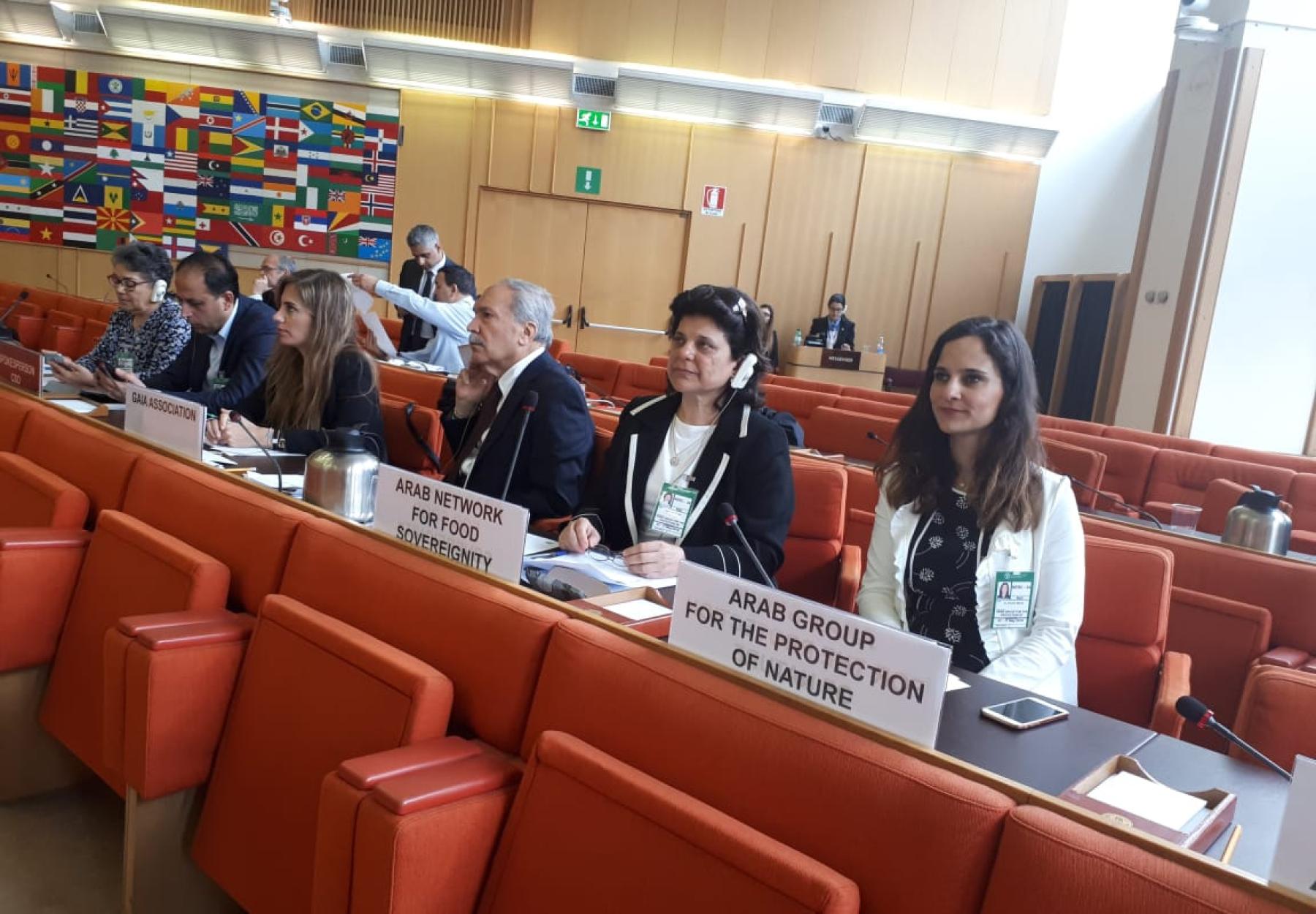
The United Nations’ Food and Agriculture Organization (FAO) held its 34th Regional Conference for the Near East in Rome on the 10th of May 2018. The conference was attended by eleven ministers, 144 participants representing 26 out of the 30-member states, three non-member observer states, and 7 representatives from civil society.
APN co-founder and president of the Arab Network for Food Sovereignty (ANFS), Razan Zuayter, noted that while the Regional Office of the FAO had put significant effort into the preparation of the conference, the results were not up to expectations, and that comes as a result, perhaps, of the centralized decision-making process, as the agenda, report, recommendations and mechanisms of civil society involvement are set at the headquarters in Rome.
Zuayter described the discussions of the conference of being insubstantial while insisting that not holding it in the region reflects the sad reality of fragmentation and disunity among countries. The conference allowed ANFS to connect with Ministers of Agriculture, the head of the Arab Organization for Agricultural Development of the League of Arab States, as well as many other government officials, and international and regional experts. However, it did not come out with effective results for the region in matters of food and agriculture. Recommendations were not discussed thoroughly. They did not include results from the important side session on armed conflict and crises, and disregarded important calls such as the need to increase agricultural ministries’ share of public spending. Additionally, the report included recommendations that needed further investigation and had met serious objections by several countries and organizations.
An example was the promotion of hydroponics for achieving food security. Hydroponics, require large capital, chemicals, and highly qualified personnel. Its produce is significantly more expensive than the produce of conventional agriculture. While this may be beneficial for exporting by medium to large farmers, it would not be favorable for enhancing local food security which requires the need to support small farmers to access local food markets.
Zuayter called for the inclusion of regional CSO networks representing large segments of food producers, in the CSO discussions and meetings that take place prior to the regional conferences. APN General Manager , Mariam Al jaajaa called for the need to include a recommendation in the Final Report for the implementation of the Committee on World Food Security (CFS) guidelines.